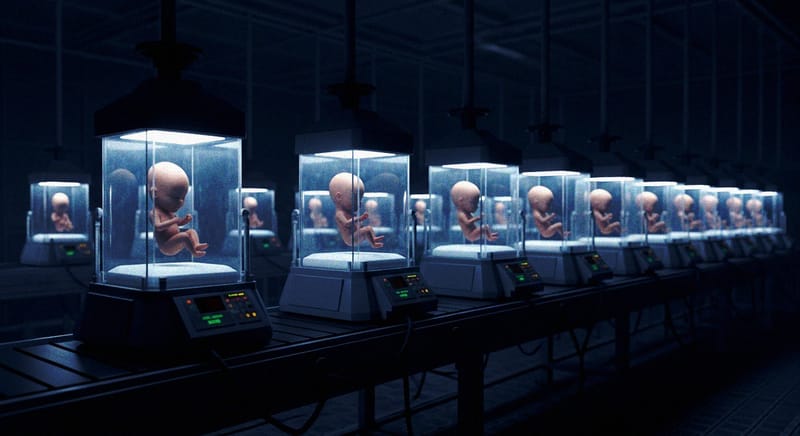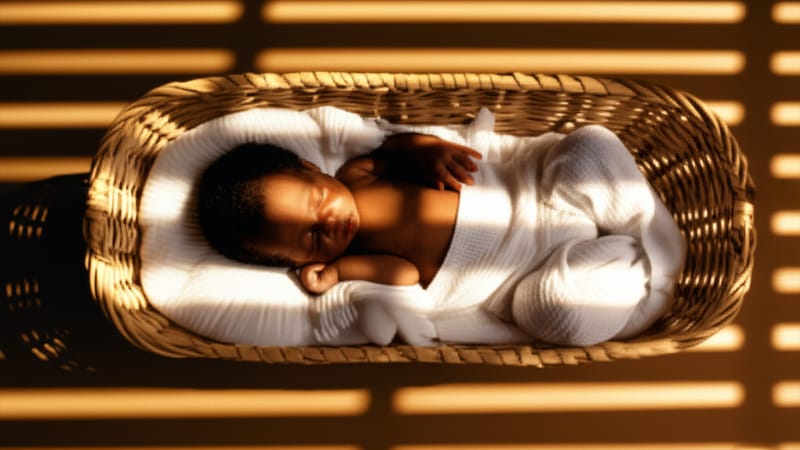Being Pro-Life in France Isn't Easy
Since the late 1970s, abortion has been widely accepted in France with little to no resistance.
A silent heartbeat stops. The life that grows in the womb is no more. The life that could have turned into a laugh, a smile, a name and a child with dreams is ended. In France, this has become a normalized routine. Every year, there are around 250,000 abortions in the country alone. 250,000 innocent lives ended through the horrors of abortion, with no consequence.
Since the late 1970s, France has been unapologetically pro-abortion with a large pro-abortion majority. Legalized since 1975 with the Veil Act, it was inscribed in the French constitution on the 8th of March 2024. Since then, abortion has been widely accepted in France, with little to no resistance. Though Simone Veil was originally only pro-abortion for isolated reasons, such as rape, medical necessity, or extreme poverty, abortion has since been normalized in France with more than one-third of pregnancies ending in completely unnecessary death.
Additionally, since the country has embraced laicité, the concept of having no official religion, resisting these harsh pro-abortion laws has been difficult. There is currently no anti-abortion political party, leaving pro-lifers in a storm of political uncertainty. French politics is no longer about choosing the best candidate, but the least corrupt.
But how does this ferociously pro-abortion country treat those who disagree? Unlike the US, freedom of expression is greatly compromised. Attempting to convince a woman to keep her child or simply standing in front of abortion clinics is punishable by 2 years in federal prison. To put it plainly, being publicly against abortion and acting accordingly is a crime. Every time a pro-lifer tries to help a pregnant woman in need, tries to pray in front of a clinic, tries to attend a march, his life is in danger – if not from law enforcement, from the aggressive opposing side.
Considering the state of the country, pro-lifers are without a doubt discouraged- but to my surprise, I learned they are not hopeless. Amid this discouraging political background, I discovered a small and determined group fighting back. This week, I assisted the Lejeune Académie, a French anti-abortion training camp organized by the national march for life. This bootcamp is held in honor of Jérome Lejeune, an anti-abortion geneticist and doctor who stood up for the rights of children with Down Syndrome in the womb. There were conferences, activities, debates- all to train the young mind to stand for life. I went on behalf of the American movement, to observe the state and functionality of the movement in my home country. Knowing how delicate the situation regarding abortion laws is, I didn’t have high hopes. However, I was pleasantly surprised.
The atmosphere of the conference was tingling with hope. There were around 50 young people, with ages ranging from 17-26, all approaching the topic at hand with passion, interest and seriousness. The academy offered several workshops, including speaking, video-making, and how to listen to women correctly in their distress. Several professionals and professors came to offer these workshops, giving proper and necessary help.
The academy had invited several international pro-life figures to come and speak at the conference. I had the pleasure of meeting several of them- Sebastian Ostertag from the USA (who was already a good friend of mine from Pro-Life Global), Olimpia Galiberti from Italy and Teodora Paul from Romania. They had a public conversation with a member of the organization One Of Us, speaking on how abortion laws have changed around the world and how to spread a positive pro-life message internationally.



(Left to Right) Teodora Paul, Sebastian Ostertag and Olimpia Galiberti
Olimpia Galiberti, who is also a lead figure in the Italian pro-life organization Stronger, explained how Italy struggles with abortion laws in a similar way to France. While the current president, Giorgia Meloni, is globally right-wing, pro-abortion laws remain untouched under her power. Teodora Paul, president of Students For Life Bucarest, explained how abortion became legal due to the influence of communism and how it has been a grave problem in her country. Finally, Sebastian Ostertag spoke about Dobbs vs. Jackson and Roe vs. Wade, how many states are becoming increasingly pro-life but especially with the trafficking of abortion pills through the mail, there is much work left to be done.
How emotional it felt to see several countries united against the same abomination. The accents were different, the languages varied, nobody looked the exact same. And still, the goal was the same- abolishing abortion. Nearly a hundred people in the conference room, separated by origin but united by conviction.
As I left, I didn’t see the French pro-life movement as weak, but as a seed waiting to grow. The movement is in dire need of motivation and financing in comparison to the American one, and yet – I dare say I have high hopes for where this movement will go. If 50 people can be trained to fight for life today, how many can be trained tomorrow? May the youth of France bravely push this movement and hold their head high- the work to be done is great, but the hope of the pro-life movement is greater.







